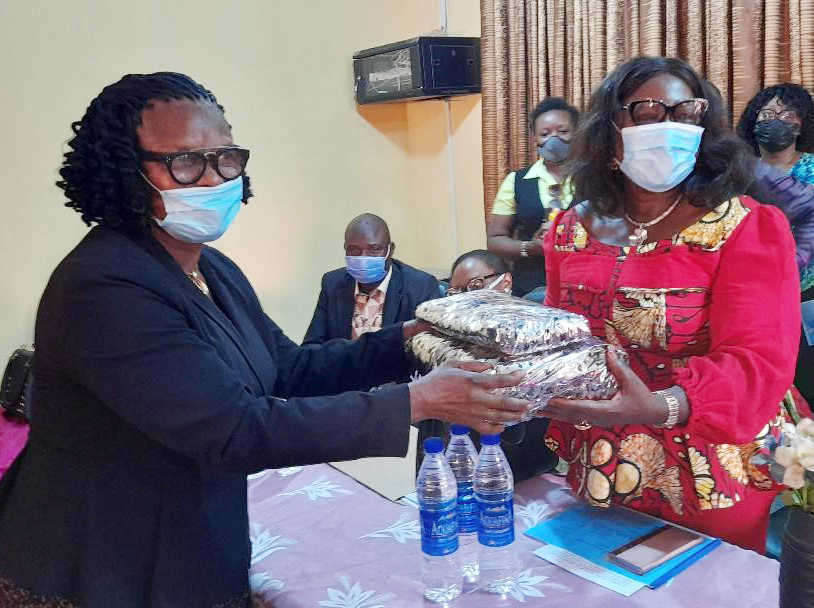Niger Delta
Bayelsa To Partner ITF In Training, Agric Development

Bayelsa State Government has indicated its readiness to partner with the Industrial Training Fund (ITF) in the area of training, promote self-reliance, agriculture and career development.
The state Deputy Governor, Senator Lawrence Ewhrudjakpo gave the indication when a delegation of ITF from the Bayelsa Area Office paid him a courtesy visit in Government House, Yenagoa.
Senator Ewhrudjakpo, in a statement by his media aide, Mr Doubara Atasi, noted that ITF’s mandate was in line with the Prosperity Administration’s determination to empower as many Bayelsans as possible with requisite skills for both personal and state economic growth.
The Deputy Governor, who underscored government’s interest in agricultural development, tasked the Commissioner in charge of the ministry and his counterparts in other relevant ministries to engage the ITF to come up with practical areas of collaboration.
Describing the visit as apt and timely, Senator Ewhrudjakpo expressed optimism that both parties will benefit from the proposed collaboration.
The state number two man decried the situation whereby the ITF does not get direct funding from the Federal Government and called for a change to enable the Agency discharge its responsibility effectively.
Senator Ewhrudjakpo, said given the challenges of inadequate resources facing Bayelsa, the state government would not be able to completely fund the operations of ITF in the state.
He also frowned at the categorization of the ITF offices based on the number of trainings done, saying it puts the state office at a disadvantaged position and therefore called for a review.
According to the Deputy Governor, an increase in support from the Federal Government will enable the Agency and the state achieves more in various areas of collaboration.
“We are really interested in agricultural skill acquisition, that is why the Commissioner for Agric is here because we are looking for agencies that can help our people acquire skills and encourage them to be engaged in meaningful ventures”, he said.
“That we run a Prosperity Government does not mean we will come out to the streets and start throwing money at the people. We are not going to give anybody money that way because we believe that it is only when you work, you will value what you get.”
“Your visit is quite timely and apt. We will see what we can do to help you. We also expect that you will reciprocate. But let me say (again) that I’m not pleased with your funding arrangement. It is like a parent who gives birth and tells the child to fend for him or herself.
“Also, the categorisation of ITF according to the number of trainings already done is not acceptable by us. It simply means Lagos and other big states with stronger financial muscle, which were actually developed with oil wealth from the Niger Delta will be more favoured since they have the resources to fund more training”, he added.
Earlier, the Bayelsa Area Manager of the Industrial Training Fund, Mrs Stella Titilola-Baiyere had stated that they were in the Deputy Governor’s office to seek areas of partnership with the state government.
She stated that the agency had the requisite personnel and expertise to train Bayelsans in virtually every area of human endeavour and urged the state government to take advantage of the available opportunities to improve the lot of the people.
Niger Delta
Eno Recommits To Private Sector Investments
Niger Delta
Delta Prioritises Primary Healthcare Over Flyover Projects
Niger Delta
C’River Assembly Seeks Crackdown On Drug Abuse
-

 Sports4 days ago
Sports4 days agoArsenal Women End Man City’s Invincibility
-

 Sports4 days ago
Sports4 days agoU-20 WWC: Falconets claim qualifier win
-

 Sports4 days ago
Sports4 days agoInsurance Deepen Enyimba’s Trouble
-

 Sports4 days ago
Sports4 days agoYouth Olympics preparation Gears up
-

 Sports4 days ago
Sports4 days agoCologne Youth Team Set Crowd Record
-

 Sports4 days ago
Sports4 days agoTornadoes Set For NPFL exit over Stadium Ban
-

 Sports4 days ago
Sports4 days agoBarca Pull Out Of Super League Project
-

 Sports4 days ago
Sports4 days agoPalmer Stars As Chelsea Compound Wolves Woes

